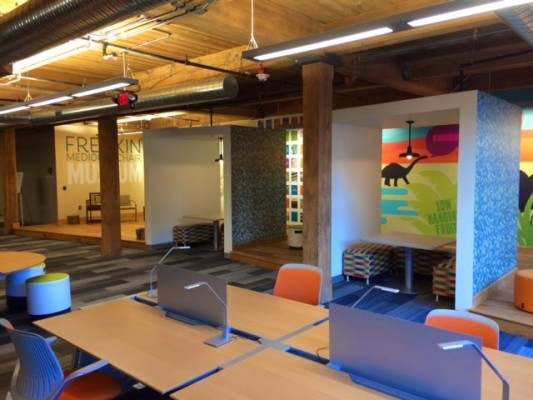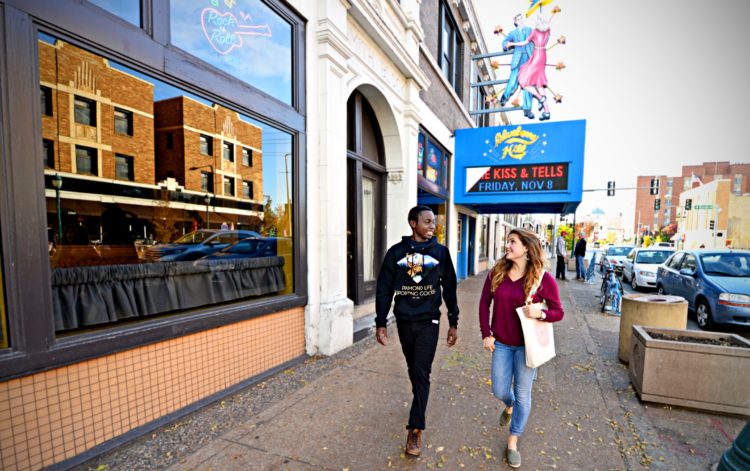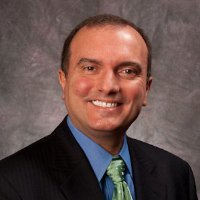“We may be a VC firm, but we’re as scrappy as a startup.”
Colleen Liebig, my boss at St. Louis venture capital firm Cultivation Capital, told me this on the first day of my internship. In the whirlwind two weeks that I have worked at Cultivation Capital, I have quickly gained an appreciation for what she meant. I’ve had the opportunity to get my hands dirty and, in the process, learn a great deal about venture capital and the world of startups. Here are four life lessons I’ve gleaned that can apply to any intern, entrepreneur, or worker:
- Stay On Your Toes
Millennials (those born between 1980 and 2000) are expected to have more than 20 different jobs in their lifetime. If my first two weeks at Cultivation Capital are any indication, that estimate seems low. In merely 14 days, I’ve researched recruitment software, conducted due diligence on potential investments, and helped generate attendance at an important event. Practice makes perfect, so never get complacent about learning and growing.
- Everything is a Negotiation
Interning at a VC firm has provided the opportunity to practice a piece of advice I received from basically all my business professors: everything is a negotiation. For example, try bargaining with a coworker to exchange your strawberries for a couple double-stuffed Oreos. Also, be aware that software salesmen may initially resist lowering the cost of a recruitment software. Yet let their emails cool in your inbox for a week, and suddenly they have some killer end-of-quarter sales. Just like you shouldn’t only check out the first link on a Google search, you should always try to get the best deal for yourself and your company.
- Jargon Matters- Sometimes
“Detailed self-starter with a proven track record of leveraging innovative synergies to streamline processes.” This is the kind of LinkedIn summary that makes people laugh out loud. Everyone knows that certain buzz words convey nothing substantial. However, as with any culture, certain jargon does come in handy and I’ve received a crash course on industry vocabulary: KPIs (Key Performance Indicators), capital calls (requests for pledged money), and AgTech (agricultural technology). Speaking the language is not sufficient for success, but it is necessary.
- There’s Always Room for Improvement
One advantage startups have over established corporations is their ability to avoid bureaucracy and move quickly on openings. Sometimes opportunities present themselves that make perfect sense. I learned this during a meeting between Cultivation Capital and Jessica Stanko of the Skandalaris Center for Interdisciplinary Innovation and Entrepreneurship, WashU’s entrepreneurship hub. Surprisingly, there has been minimal communication between the two outfits. Moving forward, Cultivation and Skandalaris will collaborate much more closely to educate students about the thriving entrepreneurship scene in St. Louis. Both groups will also help connect students with startup companies: Cultivation always needs talented interns for their portfolio companies and the Skandalaris Center wants to help students discover their passion for startups. Never settle for the status quo, because there is always room for improvement.




 In the spirit of community partnership, and given the proximity of the park to campus, Washington University in St. Louis has agreed to sponsor Fair Saint Louis by providing access to several campus parking areas during the fair.
In the spirit of community partnership, and given the proximity of the park to campus, Washington University in St. Louis has agreed to sponsor Fair Saint Louis by providing access to several campus parking areas during the fair.


 After our first class, we were divided into teams and set loose to get started on our projects! My team’s consulting project is for
After our first class, we were divided into teams and set loose to get started on our projects! My team’s consulting project is for 




